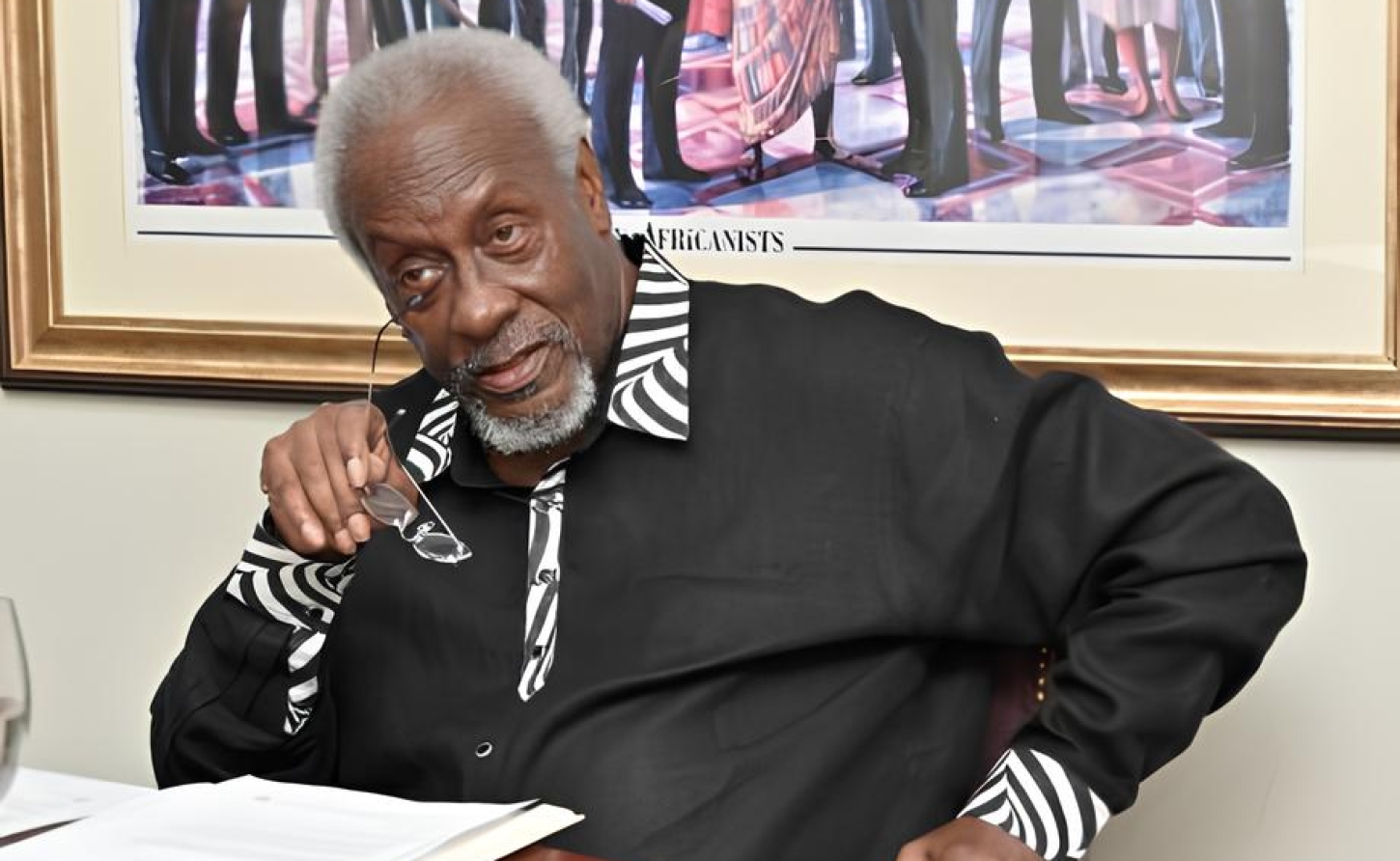CARIBBEAN | Former PM Patterson Condemns US Drone Strikes in Caribbean Waters as Threat to Regional Sovereignty

Veteran statesman warns attacks undermine decades-old commitment to Caribbean as 'zone of peace'
Former Jamaican Prime Minister P.J. Patterson has issued a sharp rebuke of recent United States military drone strikes in Caribbean waters, characterizing them as a dangerous erosion of the region's sovereignty and calling for urgent collective action by Caribbean leaders.
Since early September, President Donald Trump has authorized at least five drone attacks on vessels in the Caribbean Sea, claiming the boats were transporting narcotics to American shores.
According to Washington's account, these strikes have resulted in 27 deaths, including six people killed in the most recent attack this past Tuesday. Among those killed in the last strike are said to be two Trinidadians.
The administration has provided grainy footage but little concrete evidence regarding the alleged drug trafficking or details about those aboard the targeted vessels.
Patterson, who led Jamaica from 1992 to 2006, told The Gleaner the situation represents both a frightening and perilous development for the region. He invoked the historic 1972 Chaguaramus meeting where Caribbean leaders first declared their waters a zone of peace—a foundational principle now under unprecedented pressure.
"At our very first meeting in 1972, the four independent countries declared the Caribbean to be a zone of peace," Patterson recalled, referencing the gathering convened by Trinidad and Tobago's Eric Williams and attended by Jamaica's Michael Manley, Barbados' Errol Barrow, and Guyana's Forbes Burnham.
"What we are witnessing is a fundamentally dangerous and horrible erosion of that firm commitment to assert our collective sovereignty in the area."
The veteran politician insisted the matter demands immediate consultation among Caribbean heads of government to forge a unified response, hopefully reaffirming the region's longstanding position on sovereignty and peaceful waters.
Regional reactions to the strikes have been markedly divided. Trinidad and Tobago's Prime Minister Kamla Persad-Bissessar expressed enthusiastic support for the American action, declaring she had "no sympathy for traffickers" and stating the US military should eliminate them all. Her unequivocal endorsement stands in stark contrast to more measured responses from other Caribbean leaders.
At the United Nations General Assembly in late September, Barbados Prime Minister Mia Mottley appealed for dialogue to prevent escalation into broader conflict, while St. Vincent and the Grenadines' Prime Minister Ralph Gonsalves described the foreign militarization of waters near Venezuela as deeply troubling.
Notably absent from the public discourse has been any official statement from CARICOM, despite Jamaica's Prime Minister Andrew Holness currently serving as the regional bloc's chairman.
Patterson declined to speculate on the reasons for this silence, instead emphasizing that such critical matters transcend political divisions and should be addressed through established diplomatic channels.
The former prime minister drew attention to the broader implications of the strikes for all maritime users in the region. Caribbean fisherfolk have voiced particular alarm, fearing they could become collateral damage in what amounts to an undeclared military campaign in their traditional fishing grounds.
"There are rules which apply in international waters which should not be violated," Patterson emphasized. "What is taking place has worrying implications, not only in terms of the violation of international law, but it affects activities of those who operate in maritime waters, whether for fishing, cruising or sailing."
The controversy has exposed fault lines in how Caribbean nations balance security cooperation with sovereignty concerns. Jamaica itself entered into a Shiprider Agreement with the United States in 1997, which permits American vessels to pursue and search suspected drug-trafficking boats within Jamaican waters under certain conditions—though with formal legal frameworks absent from the current drone campaign.
Adding to the confusion, Colombia's president contradicted US claims about one targeted vessel, asserting it was Colombian with Colombian citizens aboard rather than Venezuelan as Washington alleged. The White House denied this characterization, but the dispute underscores the opacity surrounding these military operations.
Patterson's call for CARICOM unity reflects mounting unease that the region's traditional neutrality and commitment to peaceful resolution of disputes are being compromised.
As drone strikes continue without transparent accountability mechanisms, the question facing Caribbean leaders is whether their collective voice can still assert meaningful sovereignty over their own territorial waters—or whether that 1972 declaration has become merely historical rhetoric in the face of contemporary geopolitical realities.
-30-
